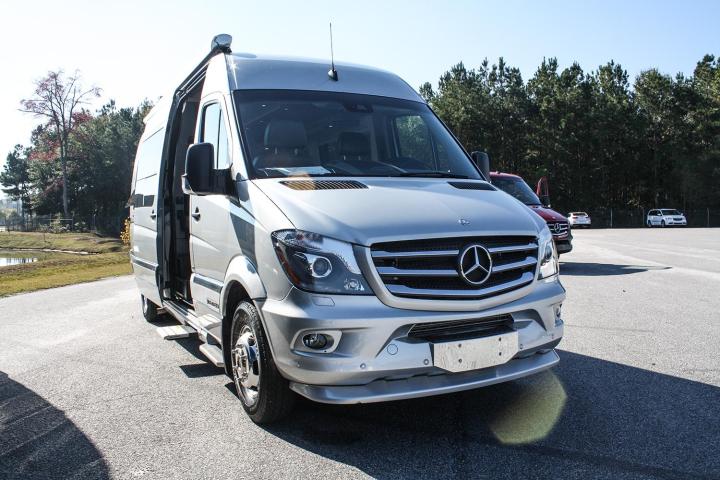
The groundbreaking for the body shop is the first step. The paint shop and assembly line buildings will follow later this year. Mercedes-Benz is investing $500 million in the plant, which will create an additional 1,300 jobs directly and an additional 400 jobs in the area with suppliers.
The new factory expands a current facility where Sprinters are put back together. It’s all about taxes, or more specifically import tariffs. To date, Sprinters sold in the U.S. are first completely manufactured, ready to go, in Germany.
Then, because of the tariffs, U.S.-bound Sprinter are partially disassembled, shipped to the U.S. as components, and then reassembled in North Charleston. That’s been going on since 2006 via warehouse and factory work that’s called “double handling,” and which is seldom efficient and often costly. Hopefully, by skipping the disassembly and reassembly stages, production costs will be lessened enough to impact price tags. One can hope.
“Today we are writing automotive history in South Carolina! The groundbreaking also marks an important milestone for our growth strategy ‘Mercedes-Benz Vans goes global’: With our new plant, we will continue with our success story in North America even more dynamically,” said Volker Mornhinweg, head of Mercedes-Benz Vans, in a statement made at the ceremony.
South Carolina Governor Nikki Haley said, “Today’s groundbreaking, and the 1,300 jobs it means, will build on the successful partnership that our friends at Daimler and Mercedes-Benz Vans have enjoyed with our state for years. We are proud to say that Mercedes-Benz vans will now be made in South Carolina!”
The new Director of Production at the plant and new CEO of Mercedes-Benz Vans, LLC said, “Construction and all necessary preparations are right on schedule. We have already begun to recruit and train a core team of employees in administration. We have also hired the first technical specialists. Applications of production job candidates will be accepted beginning mid-2017.”
The U.S. is the second largest market in the world for Sprinter vans, after Germany. Daimler said in its announcement that building Sprinter vans in the U.S. “will enable the company to more economically meet the growing demand and to considerably reduce delivery time to market.”
If “more economically” means lower prices — and what else could it mean? — Sprinter fans will win.




